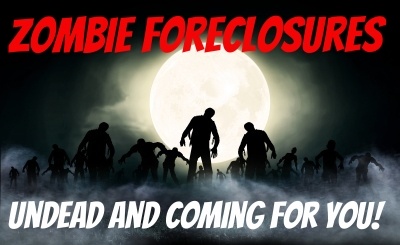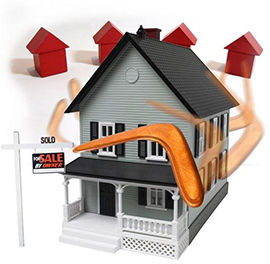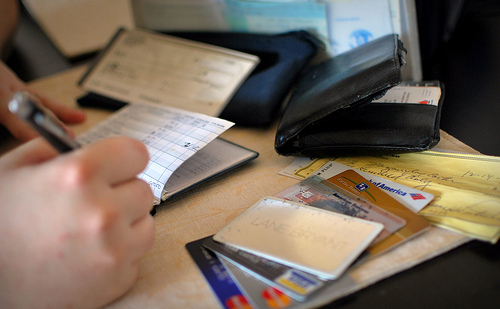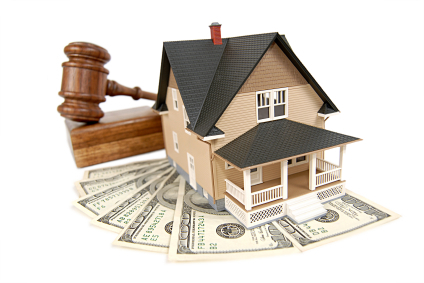Believe it or not, monsters like vampires and zombies do exist. They're not under your bed, but they might be in your neighborhood right now. Fortunately, they're not the kind that want to drink your blood or eat your brains, but you should still be aware of their existence.

[fa icon="clock-o"] Wednesday, October 28, 2015 [fa icon="user"] Maxwell Swinney [fa icon="folder-open'] foreclosure defense, foreclosure deficiency, life after foreclosure, foreclosure
Read More »
Losing your home is a stressful process to endure, but it doesn't mean you have to give up on your goal of owning a home forever. But many homeowners are unsure if they will be able to get a mortgage after foreclosure.
Yes, you can buy a home after going through foreclosure, but you may need to wait several years or more after your foreclosure is completed, and you may be charged a higher interest rate and need a larger down payment to do it.
[fa icon="clock-o"] Monday, October 19, 2015 [fa icon="user"] Maxwell Swinney [fa icon="folder-open'] understanding credit, Buying a home after foreclosure, life after foreclosure, foreclosure
Read More »
If you have gone through foreclosure before know that yes, it is possible. Known as "Boomerang Buyers" those previously foreclosed on are starting to join the market and are able to purchase a home. However, there are waiting periods for most of the common loan programs. Depending on the type of loan you are applying for here's how long you must wait before being eligible for a home loan again:
2015 FHA Mortgage Guidelines
| Bankruptcy Chapter 7 | 2 Years From Chapter 7 Bankruptcy Discharge Date |
| Bankruptcy Chapter 13 | 1 Year From Chapter 13 Bankruptcy Discharge Date |
| Foreclosure | 3 Years From After the Sale/Deed Transfer Date |
| Short Sale or Deed in Lieu | 3 Years After the Sale Date of Your Foreclosure |
Credit with a minimum of 640 credit score and proof of good payment history. If you defaulted on a FHA loan, and you are trying to apply for a new FHA loan, the waiting period will be calculated from the date the mortgage insurance was paid by FHA on the defaulted loan.
[fa icon="clock-o"] Thursday, May 14, 2015 [fa icon="user"] Jake Sterling [fa icon="folder-open'] Buying a home after foreclosure, life after foreclosure
Read More »
A few years ago, you bought a terribly overpriced home. To you $375,000 or more for that Spanish-style with a pool seemed totally reasonable at the time (won't blame you, so many others did too!!!).
Now, fast forward a couple/few years, the economy tanked, your positive cash flow probably started to become negative, and then, you realized, “Darn this house is flipping expensive, I can barely keep up.” Until you could really no longer keep up and, bye bye went the house.
You walked away, let the house go into foreclosure, and thought you were wiping your hands clean. I don't need to spell the details out for you, since you probably took a front seat on that ride....
Your bank took back your house, and you thought that's enough, the money left unpaid has been forgiven, (I mean, after everything you just went through? Right?) clean slate, fresh start for you... Well now, that's just a big fat misunderstanding on your part. There is no way that banks will let this one slide. No, they want what they bargained for, which is the $375,000 you signed that dang mortgage for.
How is the lender going to get back the $150,000 (could be more, could be less) that the foreclosure sale couldn't pay off?
They are going to take you to court for it, lawsuit style!
[fa icon="clock-o"] Tuesday, August 19, 2014 [fa icon="user"] Madel Bermudez [fa icon="folder-open'] lenders, foreclosure deficiency, life after foreclosure
Read More »
Should have saved this segment for Halloween because deficiencies induce blood-curdling, spine-tingling misery... Too much?!?
DEFICIENCY JUDGMENT?
First of all, a deficiency after foreclosure is exactly what it sounds like, it's when one owes a mortgage lender money after the foreclosure sale of their home because the house sold for less than the mortgage balance (did you think all the debt went kaput after foreclosure, yeah right!).
For example:
Say the total debt owed is $220,000, but the home only sells for $160,000 at the foreclosure sale. The remainder to be owed back to the lender is $60,000, hence a deficiency.
Yes people, that's $60,000 you STILL have to pay back to the lender, you can't just say ala- kazaam and voila, gone! (If only... I can only imagine being able to do that every month with my credit card statement... anyways that's beside the point...)
Ok, so where were we?... Yes, the flipping horror of a deficiency after foreclosure, hanging above your head like a black cloud, every single day... I mean, in all fairness, it could be worse...? (wishful thinking?)
The nitty gritty is, even if you feel like you can ignore this black cloud, it comes back to haunt you. In some states, “The lender can seek a personal judgment against the debtor to recover the deficiency. Generally, once the lender gets a deficiency judgment, the lender may collect this amount (in our example, $60,000) from the borrower by doing such things as garnishing the borrowers’ wages or levying the borrowers’ bank account.”
THAT'S NOT ALL:
[fa icon="clock-o"] Thursday, July 24, 2014 [fa icon="user"] Madel Bermudez [fa icon="folder-open'] foreclosure defense, lenders, foreclosure deficiency, life after foreclosure
Read More »
The unofficial definition of a deficiency judgment, sometimes called a mortgage deficiency judgment, could be something like: “…When your former mortgage lender won’t let you go.” Unfortunately, the real answer is a little more complicated.
If the unthinkable happens and you lose your home to foreclosure sale, there could be two outcomes. The first outcome is that the lender receives the amount of money you owe on the mortgage. In a perfect world, your house is worth $100,000 and it sells at foreclosure auction for at least $100,000, then your mortgage lender is just a bad memory (maybe).
[fa icon="clock-o"] Friday, November 15, 2013 [fa icon="user"] Jake Sterling [fa icon="folder-open'] how to stop foreclosure, foreclosure defense, foreclosure deficiency, life after foreclosure
Read More »
A new foreclosure bill is being proposed by Florida legislature to speed up foreclosures in Florida. Although recently passed by a Senate committee, the bill still must pass three more committees in the Senate and one more in the House. The bill is designed to speed foreclosure cases through the court system by allowing semi-retired judges to take on foreclosure cases, as well as allowing a number of other provisions designed to help "streamline" the amount of foreclosure cases in the state of Florida. Florida already holds a quarter of the nation's foreclosure cases, and is working to expedite the judicial process of foreclosure.
[fa icon="clock-o"] Friday, March 29, 2013 [fa icon="user"] Jake Sterling [fa icon="folder-open'] florida foreclosure defense, foreclosure defense, florida foreclosure bill, florida foreclosure laws, foreclosure deficiency, life after foreclosure
Read More »







